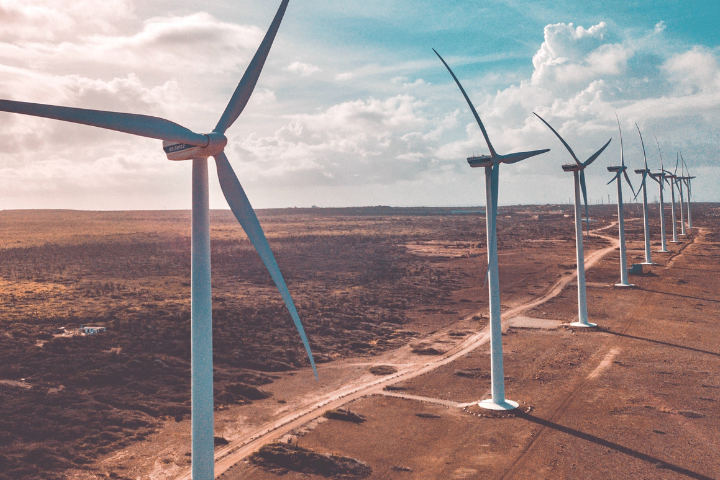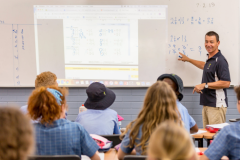NUMERACY
Environmental Science 1-2

- Explore how living things interact with the non-living world in a variety of ecosystems
- Undertake fieldwork to collect data to examine disruptions to local ecosystems
- Analyse pollution and other human impacts
Subject Code: V1SEN
Year Level: 11
Unit 1: How are earth’s dynamic systems interconnected to support life?
- How is the natural environment organised and inter-connected?
- How has the Earth’s environment changed over time?
- How do scientific investigations help develop our understanding of how Earth’s environment supports life?
You will investigate how living things are able to survive in ecosystems as diverse as deserts, seabeds, the tropics and Antarctica, as well as in backyard gardens and ponds. You will apply this knowledge and develop practical techniques by undertaking fieldwork and scientific investigations to examine change or disruptions to ecosystems and local landscapes over time.
Unit 2: What affects earth’s capacity to sustain life?
- How can we manage pollution to sustain Earth’s systems?
- How can we manage food and water security to sustain Earth’s systems?
- How do scientific endeavours contribute to minimising human impacts on Earth’s systems?
You will consider how pollutants impact on Earth’s environment. You will use this information to recommend options for managing the local and global impacts of pollution. The characteristics of a sustainable food and water systems is our second focus of study. You will investigate how different systems are aimed at securing the Earth’s food and water supplies.
The Unit culminates in a student-led scientific investigation on the effectiveness of managing a selected pollutant of interest and/or in securing water or food. This task is based on a local, regional or global case study.
Assessment
- Laboratory or fieldwork activity presented as a scientific report
- A logbook of practical activities
- Analysis and evaluation of a case study
- A response to an issue or media article
- A designed solution to an environmental issue or challenge
- Evaluation of stakeholder perspectives in environmental management
Practical work
Practical work is a central component and may include laboratory experiments, fieldwork, simulations, modelling and other direct experiences.
Pre-requisites
One or more of the following Pathways subjects are highly recommended: Blue Planet, Investigative Science, Origins, Our Chemical & Physical World.
General Mathematics 1-2

- Incorporates a practical approach that equips students with essential skills as future citizens
- Learn statistics, linear graphs, financial modelling and more
- Suits students who enjoy non-algebraic mathematics
Subject Code: V1MGM
Year Level: 11
Unit 1 & 2
This unit would benefit a broad range of students. You learn statistics, linear modelling, linear graphs, matrices, recursion and financial modelling.
Assessment
- Topic tests
- Assignments
- Modelling/problem solving tasks
- Homework tasks
- End of semester exam
What sort of student would like General Mathematics?
Someone who:
- Would like to continue with Mathematics with the option of studying Further Mathematics in Year 12
- Requires a maths unit for tertiary study but not to the level of Mathematical Methods
- Is not looking to go on to tertiary studies but may require Mathematics at Year 11 level to undertake a particular pathway.
Pre-Requisites
Pathways (Year 10) subjects: Pre-General or Pre-Methods.
Other consideration
You need to enjoy Mathematics, in particular the non-algebraic type of mathematics (i.e. Data and Statistics, Financial Mathematics, Networks, Geometry and Trigonometry.)
You must have a Ti-nspire CAS calculator. It is used extensively throughout the unit.
